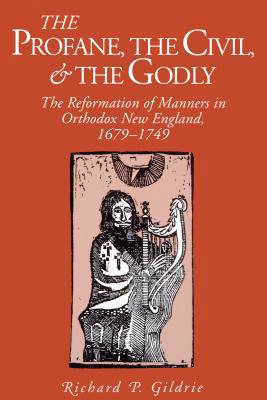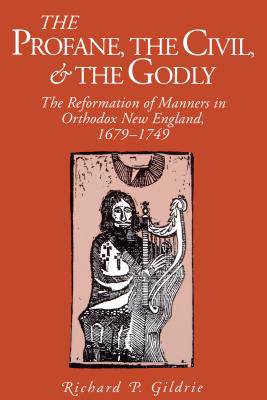
- Afhalen na 1 uur in een winkel met voorraad
- Gratis thuislevering in België vanaf € 30
- Ruim aanbod met 7 miljoen producten
- Afhalen na 1 uur in een winkel met voorraad
- Gratis thuislevering in België vanaf € 30
- Ruim aanbod met 7 miljoen producten
The Profane, the Civil, and the Godly
The Reformation of Manners in Orthodox New England, 1679-1749
Richard P GildrieOmschrijving
In this prize-winning study of the sacred and profane in Puritan New England, Richard P. Gildrie seeks to understand not only the fears, aspirations, and moral theories of Puritan reformers but also the customs and attitudes they sought to transform. Topics include tavern mores, family order, witchcraft, criminality, and popular religion. Gildrie demonstrates that Puritanism succeeded in shaping regional society and culture for generations not because New Englanders knew no alternatives but because it offered a compelling vision of human dignity capable of incorporating and adapting crucial elements of popular mores and aspirations.
Specificaties
Betrokkenen
- Auteur(s):
- Uitgeverij:
Inhoud
- Aantal bladzijden:
- 260
- Taal:
- Engels
- Reeks:
Eigenschappen
- Productcode (EAN):
- 9780271025957
- Verschijningsdatum:
- 15/04/1994
- Uitvoering:
- Paperback
- Formaat:
- Trade paperback (VS)
- Afmetingen:
- 152 mm x 229 mm
- Gewicht:
- 385 g

Alleen bij Standaard Boekhandel
Beoordelingen
We publiceren alleen reviews die voldoen aan de voorwaarden voor reviews. Bekijk onze voorwaarden voor reviews.











